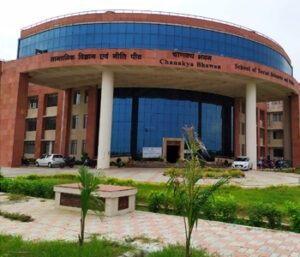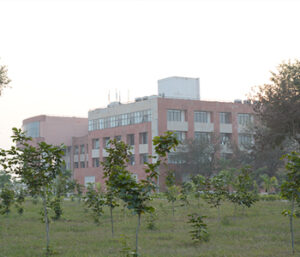




About the Department: The Department of Psychological Sciences is established under the School of Human Sciences in 2011.The aims of department of psychological sciences is to study human beings as a social, cultural and biological species in the context of their experiences, activities, constructs and artefacts. The human nature is not disciplines bound and therefore the school emphasizes interdisciplinary approach to understand it.The department has a mission to pursue quality education and research for greater understanding of human nature and challenges faced by humanity.Discipline like Sociology, Psychology, Social work and other social sciences interactively may engage in research leading to knowledge system that serves the development of mankind.The Department was set up to develop an awareness of the importance of studying human behaviour and the societal relevance of psychology.It is presently offering Master’s and Ph.D programmes in Psychology.Department also participates in enhancing the overall well-being of students by facilitating their emotional, interpersonal and intellectual development through Centre of well being.
Department Overview
|
Established in |
2011 |
|
Employee Strength |
Faculty- 04+01 (Lien) |
|
Student Strength |
Research Scholar & JRF- |
|
Placement 2021 |
x (tentative) |
|
Publications, Books & Patent |
Publications- |
News and Announcements
Important Links
-
Formats & Downloads
-
Archive
Board of Studies (BoS)
BoS is a statutory body for each department/centre, primarily responsible for syllabus design and regular update. As described in the Ordinance section 25.10,
The functions of the Board of Studies shall be:-- To recommend to the School Board, courses of studies offered by the Department/Centre and continue updating syllabus;
- To take all steps in accordance with the provisions of the Regulations about teaching and evaluation of various courses/programmes of the Department/Centre;
- To recommend to the School Board measures for the improvement of teaching and research in the Department/Centre;
- To constitute panels of experts to be considered for appointment as Examiners, Board of Examiners for various courses/academic programmes and M.Phil./Ph.D. thesis representing various specializations of Departments/Centres; and
- To perform such other functions as may be assigned to it by the School Board, the Academic Council, the Executive Council and the Vice-Chancellor.
Department Committee (DC)
As enshrined in the Ordinace-26, the Department/Centre Committee (DC/CC) shall consist of the Head of the Department/Centre, as Chairperson ex-officio, and all faculty members of the Department/Centre.
26.2 The Department/Centre Committee shall have the following functions, namely–- To make proposals to the Board of Studies on academic programmes concerning teaching and research, and the creation, specialization and abolition of teaching posts;
- To propose schemes for the maintenance and improvement of the standards of various programmes of study and research of the Department/Centre;
- To apportion the teaching and co-curricular work of the Department/Centre among the teachers thereof and monitor the proper execution thereof;
- To consider and decide on the assignment and utilisation of the space, equipment and other assets of the Department/Centre and other matters of general and academic interest of the Department/Centre;
- To consider and recommend perspectives and major thrust areas for research and to propose research projects to be taken up by the members of the Department/Centre, individually/collectively;
- To review and apprise the SRC/URC with the current status of research in Department/Centre;
- To suggest to SRC/URC norms related to qualifications and research experience of a faculty to be recognized as a research degree supervisor and to constitute Department/Centre Research Degree Committee (DRC/CRC);
- To suggest to University Admission, Teaching and Evaluation Committee (UATEC) on any issue related to admission, teaching, continuous evaluation in courses and students’ assessment of courses, offered by the Department/Centre to improve quality of education.
- To constitute such Committee(s) comprising members of the Department/Centre, and if necessary external experts, for framing and implementation of rules and regulations related to admission, teaching, continuous evaluation, maintenance of students’ records including alumni affairs as well as promotion of research and development; and
- To perform such other functions as may be assigned by the Ordinances or Regulations, or by the Vice- Chancellor/Dean/School Board from time to time.
Department Research Degree Committee (DRDC)
Departmental/Centre Research Degree Committee (DRDC/CRDC) deal with all matters connected with the Ph.D. Programme of the Department and report the matter to the University Research Degree Committee (URDC), as per University Ordinance-33. It consists of the Head of Department/Centre as Chairman and other faculties in the department.
Functions of DRDC/CRDC are as follows:- Allotment of Supervisor, Co-Supervisor, recording reasons for not admitting a candidate.
- Recommendation for extension of time for submission of thesis
- Recommendation to peruse a part of research outside the University
- Approval of the Course Work
- Assessment and Grading in Course Work
- Monitoring the research progress of the candidate
- Approval of Research plan proposal/language
- Sanction of duty leave to the Ph.D. candidate
- Assessment of Ph.D. work through pre-submission seminar
- Maintaining the record of research paper publications of the candidate
- 11 Recommendation of panel of experts for thesis evaluation
- Assessment of revised thesis for satisfactory compliance, if any
- Arrangement of Viva-voce in the absence of the supervisor
- Recommendation to waive the Viva-voce
Research Advisory Committee (RAC)
A Research Advisory Committee (RAC) is constituted for every research scholar admitted in PhD programme. The Committee would guide the research scholar to develop the study design and methodology of research and to To periodically review and assist in the progress of the research work of the research scholar. The committee shall have also have power to recommend the co-supervisor and cancellation of registration
Vision |
|
Mission |
|
- Name of the program: M.A./M.Sc in Psychology
- Objectives of the Program:The Department offers M.A./ M.Sc in Psychology which is of four semesters and the curriculum is so designed as to provide strong theoretical, methodological and contemporary knowledge of various areas of Psychology to the students. The purpose is to equip the students with knowledge, skills and values to become effective and competent professional psychologist. During the course, the students are taken for field visit at mental health centres and counselling cells besides interactive classroom teaching and laboratory training. Time to time extended lectures from experts in relevant field is also conducted. Department provides specialization in the field of Clinical Psychology, Health Psychology, Organizational Behaviour and Social Psychology
- Program Outcomes:This academic training enables the students to work in a broad range of settings such as, medical, organization, counselling centres, NGOs, researchers and academicians.
- Eligibility: Bachelor’s Degree with Psychology/Human Sciences/Sciences/ Social Sciences/Life Sciences/ Medical Sciences/Engineering with a minimum of 50% marks from any recognized University for General/OBC candidates and 45% marks for SC/ST candidates.
- Intake: 45
Objectives of the Programs: Ph.D programme at the Department of Psychological Sciences is a well structured platform to train and develop post graduate students to carry out quality research in the area of psychological sciences. The Ph.D programme is well equipped to offer theoretical perspective with basic research skills that develop competence and expertise required to conduct independent research.The programme also aims to disseminate and advance knowledge in research methodology and higher statistics to plan and analyze research in psychology.Currently, the department offering research in the specialized areas of Social Psychology, Clinical Psychology, Organizational Behaviour and Health Psychology.
Programme outcome: This Programme would help students develop analytical mind to comprehend and analyze the various dimensions of human behaviour. It prepares students to do interdisciplinary research as to provide solutions to theoretical, social, and contemporary issues of humans and their society.
Eligibility:
- Ph.D in Psychology: Master’s Degree in Psychology with 55% in aggregate or its equivalent Grade B in UGC 7 Point scale. A relaxation of 5% of marks from 55 to 50% or equivalent relaxation of grade for SC/ST/OBC( Non creamy layer) / Differently abled candidates.
- Ph.D in clinical Psychology: Master’s Degree in Psychology and M.Phil in Clinical Psychology from an Institute/ University recognized by Rehabilitation Council of India, with 55% in each in aggregate or its equivalent Grade B in UGC 7 point scale. A relaxation of 5 % of marks from 55 to 50%or equivalent relaxation of grade for SC/ST/OBC(non creamy layer) /Differently abled candidates.
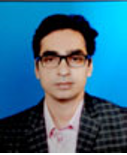
Prof. Dharmendra Kumar Singh
Professor and Head
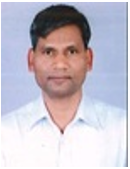
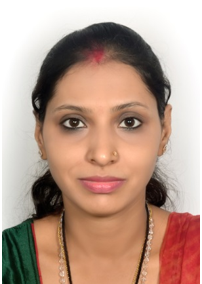

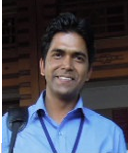
- Lab facility:
The existing psychology laboratory provides three kinds of facilities- conducting experiments, psychological testing and qualitative research. The laboratory also enables students to carry out computer based experiments and lab experiments on psychosocial phenomenon .The laboratory contains numerous psychological test such as neuropsychological test/ batteries, cognitive tests, psychodiagnostic tests, personality tests, intelligence tests, adjustment scales and other important scales.The department has also computer lab equipped with software to carry out analysis of the research work. - Research Lab:
List of psychological instruments/test materials
- Adult Suicidal Ideation Questionnaire
- AIIMS Neuropsychological Battery Adult
- Block Design Test
- Bhatia Test
- Brief Neuropsychological cognitive examination (BNCE)
- Battle’s self esteem inventory (A. Kumar)
- Bell’s adjustment (Eng)
- Binet Simon Test Indian
- Cube construction
- Comprehensive interest schedule (female)
- Comprehensive interest schedule(male)
- Children Apperception Test (human) Bellack
- Coping resources inventory
- Davi’s battery of differential abilities (DBDA)- Sanjay Vohra
- Dyslexia Screening Test(junior)
- Eysenck Personality Questionnaire Revised
- Family environment scale – Bhatia &Chadha
- Global adjustment scale – Sanjay Vohra
- Introversion & Extroversion inventory (Dewedi)
- Job stress survey (Spielberger.C.D.)
- Kauffman Brief intelligence Test
- Long term memory – Beena Srivastva
- Malin’s intelligence scale for children
- Mental health inventory – Jagdish &Srivastva
- MMSE (Folstein et al)
- Multifactor leadership questionnaire – Bernard
- Multidimensional Aptitude Battery-II
- Mayre Briggs type indicator (MBTI)
- Mohsin shamshad bell’s adjustment – Hindi
- NEO- FFI-3
- Ocupational aptitude survey and interest schedule – R.M. Parker
- Occupational stress inventory –R – Samuel H. Osiporo
- PGI- Health Questionnaire(Verma et al)
- PGI-BBD (Battery for brain dysfunction)
- Picture frustration test( U. Pareek)
- 16 P.F(English)
- Rorschach Psychodiagnostic Test
- Religious value test (Tripathi.S.S)
- Raven’s educational CPM/CVS(English)
- Raven’s Standard Progressive Matrices
- Size &Weight illusion box 22 cot.+manual
- State trait anger -2 test
- State trait anxiety (Speilberger)
- State Anxiety Scale (A.Singh)
- Stop watch (Timer)
- Stop watch (mechanical)
- Student’s stress scale – Manju Agarwal
- Sentence completion test – Dubey
- Self esteem inventory children – A. Kumar
- Stethoscope
- Tennesse self concept scale
- Teaching job satisfaction scale – Srivastva
- Thematic Apperception Test
- Verbal Reasoning ability test – Dubey
- Verbal intelligence test – Shrinivasan
- Vineland Social Maturity Scale (Indian)
- Vineland Adaptive Behaviour Scale
- Weschler Adult Intelligence Scale-IV
- Weschler Intelligence Scale for Children-IV
- WASI-II
- Weschler Memory Scale –II
- Student Stress Scale- Zakir Akhtar
- Environment Attitude Scale- Shrivastva & Dubey
Lab Staff and their contacts:
Achievements:
Projects:Major Research Project: “A study of peoples’ awareness and perception towards climate change: its linkages with pro-environment behavior”. Indian Council of Social Science Research (ICSSR)
PI: Dr. Narsingh Kumar
Co-PI: Prof. Pradhan Parth Sarthi.
ICSSR Reference: F.No.02/152/2017-18/RP/Major
| S.No. | Research Scholar/JRF/Project staff | Photograph | Guide | Academic Qualification | Research Area | Achievement/Award /Publication |
|---|---|---|---|---|---|---|
| 1 | Sheetal Barnwal sheetal.bhu32@gmail.com CUSB2007175005 |
Dr. Das Ambika Bharti | MA | Psychology | Psychosomatic Disorder and their prevention through Yoga (Published in edited book ISBN 978-81-7637-361-6) | |
| 2 | PUJA PRASAD itspuja.21@gmail.com CUSB1907175001 |
Dr. Chetna Jaiswal | MA in Psychology | Positive Psychology | ||
| 3 | Ravi Shankar Kumar rsk2719@gmail.com CUSB1907175002 |
Dr. Das Ambika Bharti | MA | MENTAL HEALTH | Nil | |
| 4 | Smriti Kumari Smriti9905111302.sk4@gmail.com CUSB1707175003 |
Dr. Nasingh Kumar | MA | Organizational Behavior | 1 Publications | |
| 5 | Sandra Suresh sandrasuresh6212@gmail.com 2007175004 |
Dr Narsingh Kumar | MSc | Psychology (Organizational Behaviour) | ||
| 6 | Piyush Deurkar piyushdeurkar111@gmail.com CUSB1807175002 |
Dr. Narsingh Kumar | M.A.(Psychology) | Social Psychology & Positive Psychology | Paper Presented at Conferences:
|
|
| 7 | Shishu Kesh Kumar shishu1311@gmail.com CUSB1707175002 |
Dr. Das Ambika Bharti | MA | Health/Clinical Psychology | Two Best paper award one from PhD work another from master's dissertation 4 publication but not yet from PhD work (4 paper were communicated from PhD work) | |
| 8 | KUMARI SRISTEE srisvarsha1901@gmail.com CUSB2007175002 |
Dr.DHARMENDRA KUMAR SINGH | MA | |||
| 9 | Akanksha Chaurasia achaurasia705@gmail.com CUSB2007175001 |
Dr. Dharmendra kumar singh | M.A. in Psychology | Psychology | ||
| 10 | PADMAKSHI padmakshi.yerena@gmail.com CUSB1807175001 |
Dr. MANGLESH KUMAR MANGLAM | MA | CLINICAL PSYCOLOGY | ||
| 11 | Nishi Srivastava nishisrivastava300@gmail.com CUSB2007175003 |
Dr. Chetna Jaiswal | MA | Psychology | ||
| 12 | 2017-2021Rohit Ranjan rohitarinay@gmail.com CUSB1707175001 |
Dr. Dharmendra Kumar Singh | MA | Psychology |
- Project
- Specific Research Areas
- Research Publications
E-Resources for Courses
|
Course Code |
Course Name |
Question papers (Previous Years) |
Notes and Presentations |
Video and Suggested readings |
Course Assessment Design - MA
- Semester –I
- Semester –II
- Semester –III
- Semester-IV
Gallery
Department of Psychological Sciences
- Present Head
| HOD Name | Period | Contact | Image |
|---|---|---|---|
| Dr. Dharmendra Kumar Singh | 19.09.2019-Onwards | Contact : +91-9955357147 Email: dharmendrakr@cusb.ac.in |
 |
- Former Heads
- Prof. Tej Bahadur Singh (18.02.2016-18.09.2019)
| Office Staff | Email Id | Contact | Image |
|---|---|---|---|
| Mr. Amar Kumar | amarkumar912312@gmail.com | +91-7979952328 |


